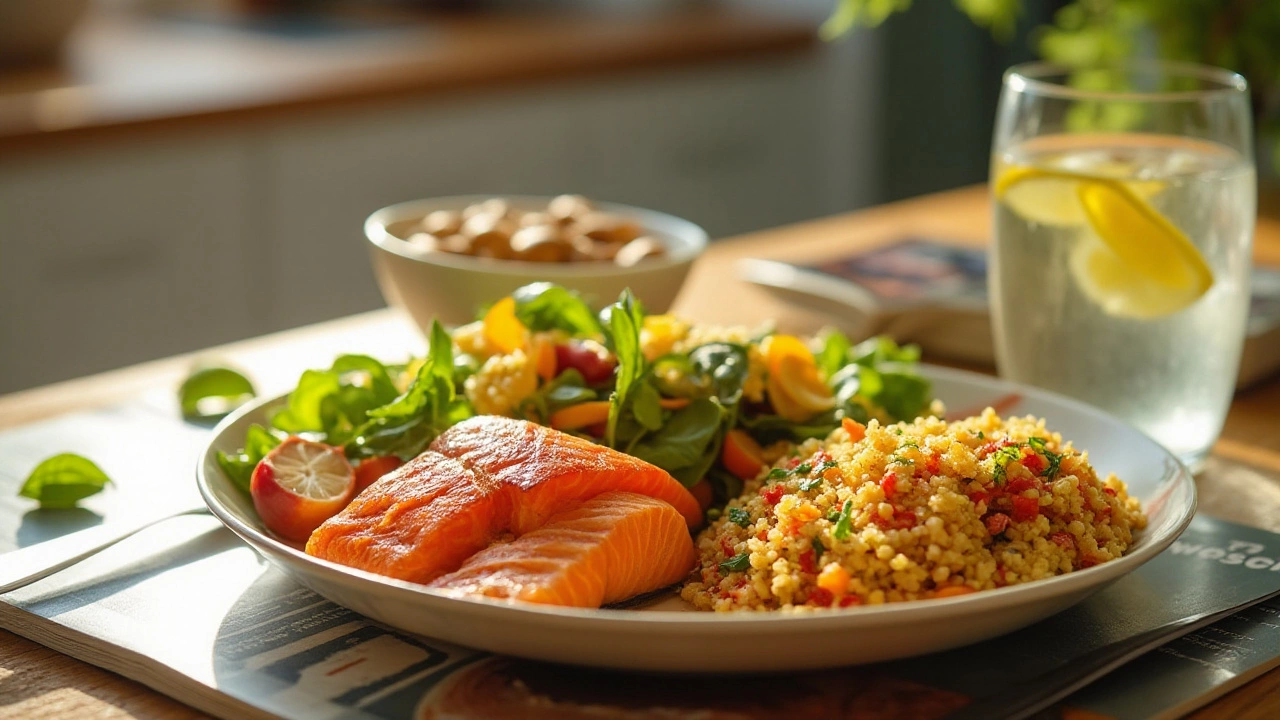Nutrition Tips to Power Your Game
If you want to run faster, lift heavier, or just feel better after a training session, the food you eat matters more than any gadget. Below are bite‑size tips you can add to your daily routine without overhauling your whole diet.
Fueling Before, During, and After Workouts
Pre‑workout: Aim for a snack that balances carbs and a little protein 30‑60 minutes before you hit the gym. A banana with a spoonful of peanut butter or a small bowl of oatmeal topped with berries works well. The carbs give you quick energy, while the protein stops muscle breakdown.
During the session: For activities lasting under an hour, water is usually enough. If you’re sweating heavily or exercising for more than 60 minutes, sip a sports drink that contains electrolytes and about 5‑10 g of carbs per 500 ml. This keeps blood sugar steady and prevents cramps.
Post‑workout: The golden window is the first 30‑45 minutes after training. Pair 20‑30 g of protein with carbs in a 3:1 ratio to refill glycogen and jump‑start muscle repair. Think Greek yogurt with honey, a chocolate milk, or a protein shake blended with a piece of fruit.
Everyday Habits for Long‑Term Success
Mind the macros: Roughly 45‑55 % of your calories should come from carbs, 20‑35 % from protein, and 20‑35 % from fats. Adjust these numbers based on your sport—endurance athletes need more carbs, strength athletes benefit from extra protein.
Hydration is key: Aim for 2‑3 L of water a day, plus extra when you train. A simple trick is to check the colour of your urine – light straw means you’re good, dark amber signals you need more fluids.
Snack smart: Keep portable options handy. Trail mix with nuts and dried fruit, a hard‑boiled egg, or a whole‑grain wrap with turkey can curb hunger without loading you with sugar.
Read labels: Look for “added sugars” and hidden salts. Foods listed as “low‑fat” often replace fat with sugar, which can sabotage performance.
Don’t ignore recovery days: On rest days, keep protein intake steady and eat slightly fewer carbs. This supports muscle repair while preventing unwanted weight gain.
Supplements are optional: If your diet is solid, you probably don’t need extra. A daily multivitamin or vitamin D in winter can fill gaps, but avoid mega‑doses unless a professional advises.
Start by picking one tip that feels easiest – maybe swapping soda for water or adding a protein source to breakfast. Small changes add up, and you’ll notice more energy, quicker recovery, and better results on the field or the gym.
Remember, nutrition isn’t a one‑size‑fits‑all checklist. Listen to your body, experiment with timing, and adjust portions until you find what fuels you best. With the right food habits, you’ll see the difference in every training session.
Top Foods to Boost Your Fitness Journey

Discover the key foods that can enhance your fitness journey. Learn how specific nutrients contribute to your body's performance and recovery. Explore the perfect balance of proteins, healthy fats, and carbohydrates that can fuel your workouts and support muscle growth. Delve into what makes certain foods beneficial for staying fit and how to integrate them into your daily diet.
